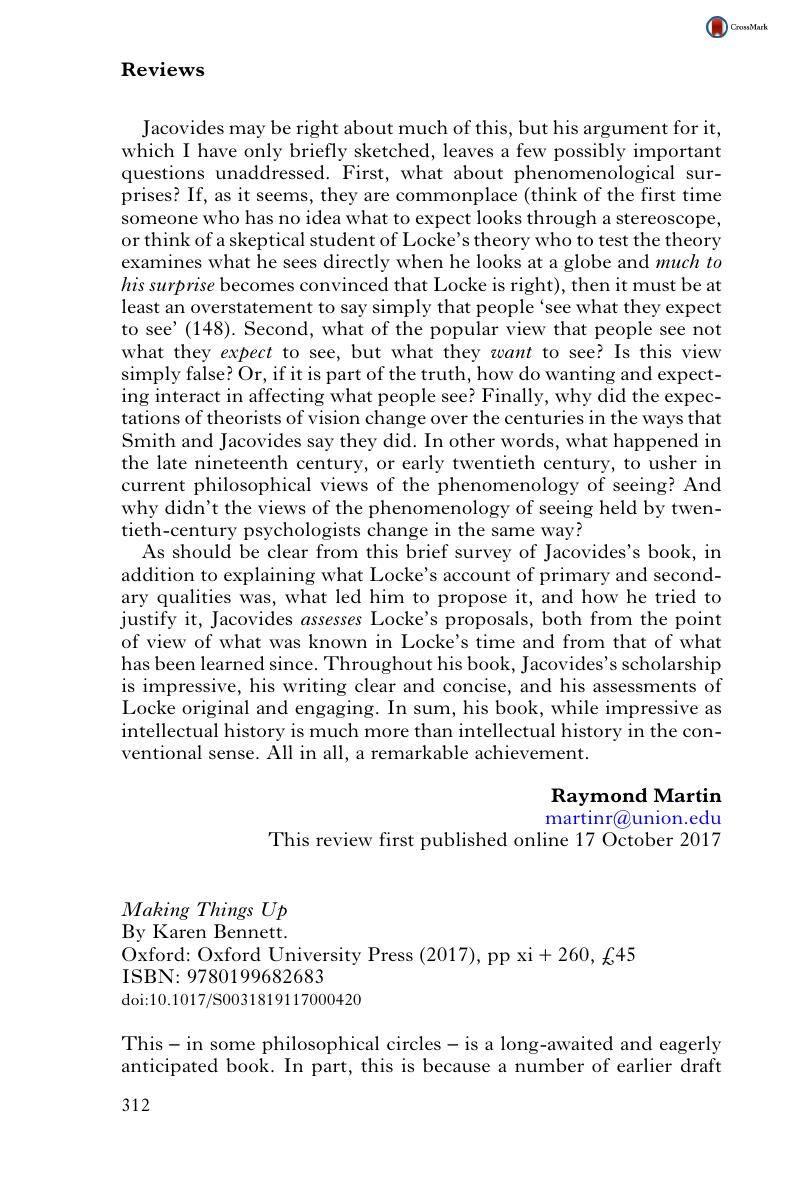No CrossRef data available.
Published online by Cambridge University Press: 09 October 2017

1 Supervenience sneaks back as an example of building on page 62, presumably in error.
2 We could also call this most fundamental relation ‘Building’ (perhaps with subscripts to distinguish them) but for the purposes of this review I will ignore the distinction between the two.
3 Schaffer, Jonathan, ‘Monism: The Priority of the Whole’, Philosophical Review 119 (2010): 31–76CrossRefGoogle Scholar.
4 Kim, Jaegwon, ‘Making sense of emergence’, Philosophical Studies 95 (1999): 3–36CrossRefGoogle Scholar.
5 Wilson, Jessica M., ‘No work for a theory of grounding’, Inquiry 57 (2014): 535–579CrossRefGoogle Scholar.
6 Obviously, such a view is often not counterintuitive to its proponents, and (counterintuitive or not) it may be that their view is correct.
7 See also Jonathan Schaffer, op. cit., 40.
8 This restriction on modal recombination is one reason why Schaffer rejects a conception of properties which have their causal roles essentially. See, for example, Schaffer, Jonathan, ‘Quiddistic Knowledge’, Philosophical Studies 123 (2004): 1–32CrossRefGoogle Scholar.
9 Dasgupta, Shamik, ‘The possibility of physicalism’, The Journal of Philosophy 111 (2014): 557–92CrossRefGoogle Scholar. Fine, Kit, ‘Guide to ground’, in Correia, F. and Schneider, B. (eds), Metaphysical Grounding: Understanding the Structure of Reality (Cambridge: Cambridge University Press, 2012): 37–80CrossRefGoogle Scholar.
10 Bennett, Karen, ‘By our bootstraps’, Philosophical Perspectives 25 (2011): 28CrossRefGoogle Scholar.
11 Heil, John, From an Ontological Point of View (Oxford: Oxford University Press, 2003)CrossRefGoogle Scholar.
12 Bennett, Karen, ‘Why the Exclusion Problem Seems Intractable and How, Just Maybe, to Tract It’, Noûs 37: 471–97CrossRefGoogle Scholar.